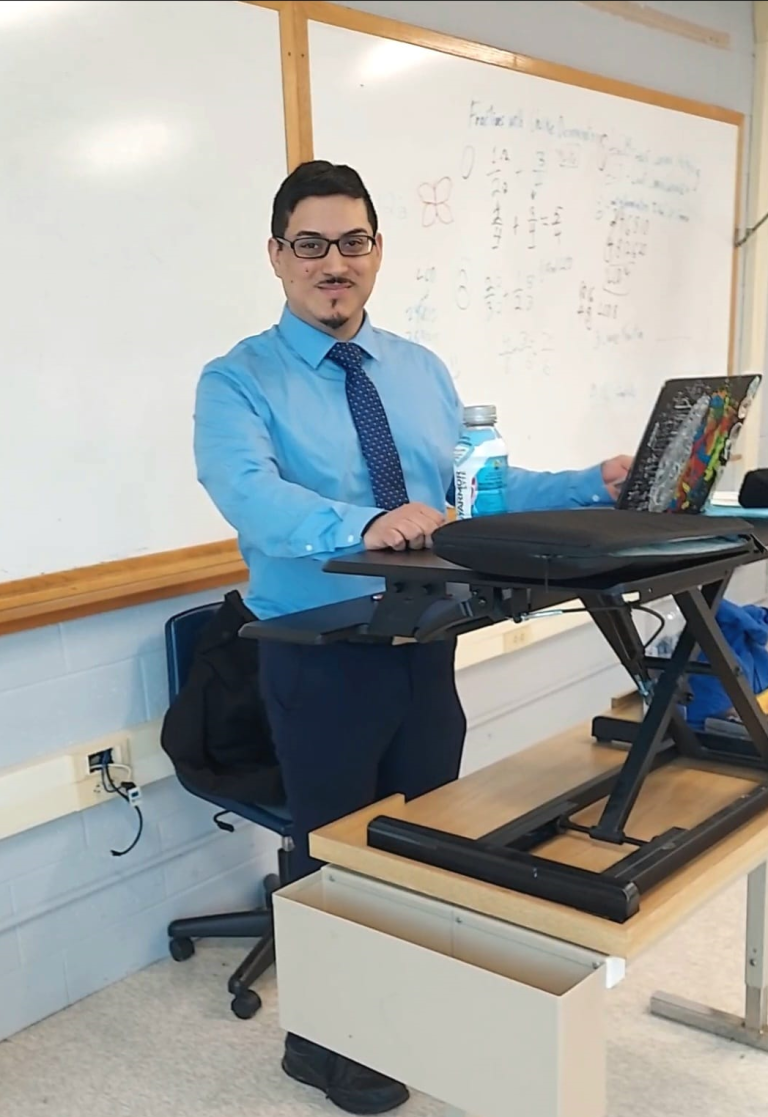Math: The Universal Language
Why would someone who graduates with a degree in music and mathematics with a concentration in computer science choose to become a tutor? This month’s spotlight tutor, George Trejo answers that question with a word, ‘passion.’
George exudes enthusiasm when discussing working with students to help them find a pathway to enjoying and excelling at math. Having worked with struggling students for over 10 years, he has experienced both the challenges and the rewards of tutoring. Not every student he meets in the classroom is ready to learn. However, George has found ways to reach even the toughest students whose negative mindsets about math have caused them to shut down and disengage from learning.
Keys to Student Engagement
Find a connection:
A good tutor doesn’t give up on difficult students. George seizes the opportunity by working to engage those students. He does this by finding an outside interest, a connection point to open the pathways for communication.

He described a student who came to class totally disengaged. George said that student sat with his head down on the desk and refused to engage. Knowing that opening the lines of communication was important to developing a working relationship, George looked for a connection and found it. The student had a music production homework assignment sitting on his desk. Having majored in music, George took the opportunity to ask to look over the boy’s assignment. Explaining that the lesson, which was about time signatures, was based on fractions, he opened a new way of thinking about math for the student. It was the moment that the student discovered how math connected to other areas of life. As George tapped out the rhythms on the page, he encouraged the student to do the same. Eventually the boy began engaging with George and level of trust was established through their connection to a common interest. George said that within three weeks, the boy was not only eager to come to each session to learn more math, but the boy also requested more homework and was eager to be caught up to his peers.
Listening is key:
Turning around a student’s perspective about a subject they struggle with, is something George excels at. When he begins a new session, he said he takes a few minutes to engage students in a conversation to find what interests them. George said that asking students about their interests and why they enjoy them helps set the groundwork for trust. George also said that by effectively listening to students talk about their day helps him understand if their attitudes about learning are in the right place.
Positive Encouragement:
George believes positive encouragement is necessary when motivating students to learn. He wants every student he works with to feel comfortable with their level of learning. George stated that tutors need to not only have a high-level of competency in the subject matter, but they also need to be flexible and adjust their teaching methods to meet their student’s learning style. He said tutors should not just have one way, but maybe five different ways of explaining something in order to find the method that connects with their students’ learning abilities. He believes positive encouragement leads to finding a comfort level in learning.
Tips for the first day:
George offered the following tips for tutors working their first day on the job:
- Get students’ attention and introduce yourself.
- Explain why you are there.
- Set expectations for the class and priorities going forward.
- Ask students to introduce themselves.
- Use mini icebreakers to find common interests such as having them name their favorite food, favorite place to visit or preferred music genre.
- Encourage open communication when assigning assessments, allowing the student the opportunity to tell you if the work is too easy or too hard.
George knows tutoring is the right career choice for himself. He believes that tutoring allows for more flexibility and creativity in teaching styles than what he experienced when he was a classroom teacher. Tutoring also allows him to connect with young people to help them achieve their goals beyond the classroom, and he said he finds it rewarding to watch students grow and succeed. George said that math is more than just numbers and calculations. He views math as a universal language that connects to other areas of learning such as medicine, nature, and music, and he enjoys helping others find their own ways of appreciating the subject.